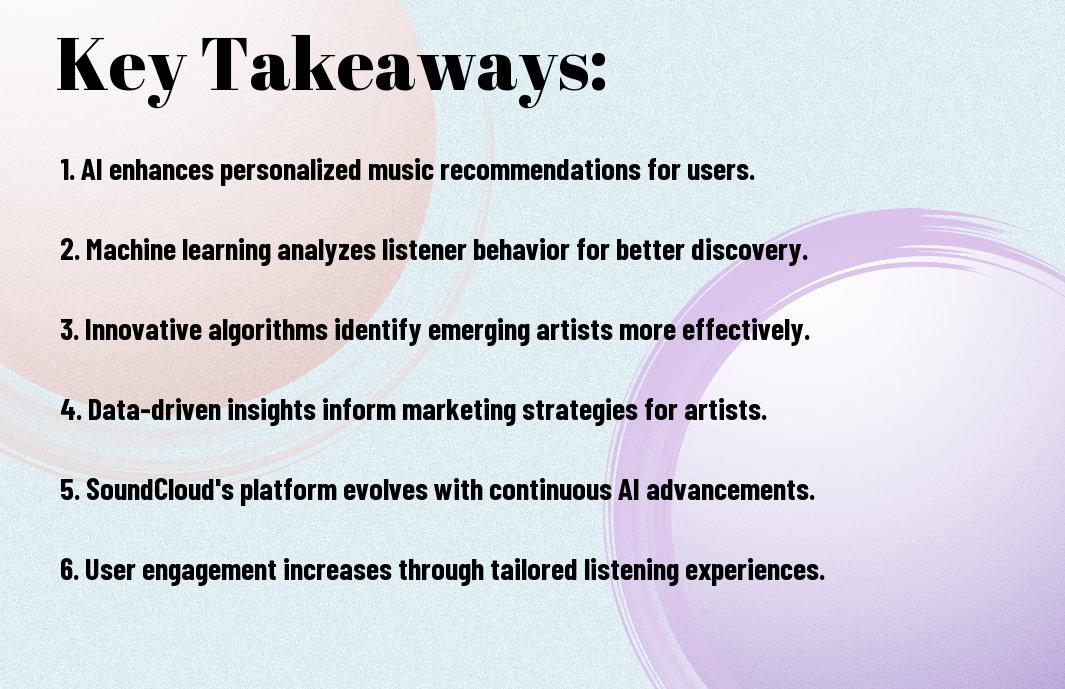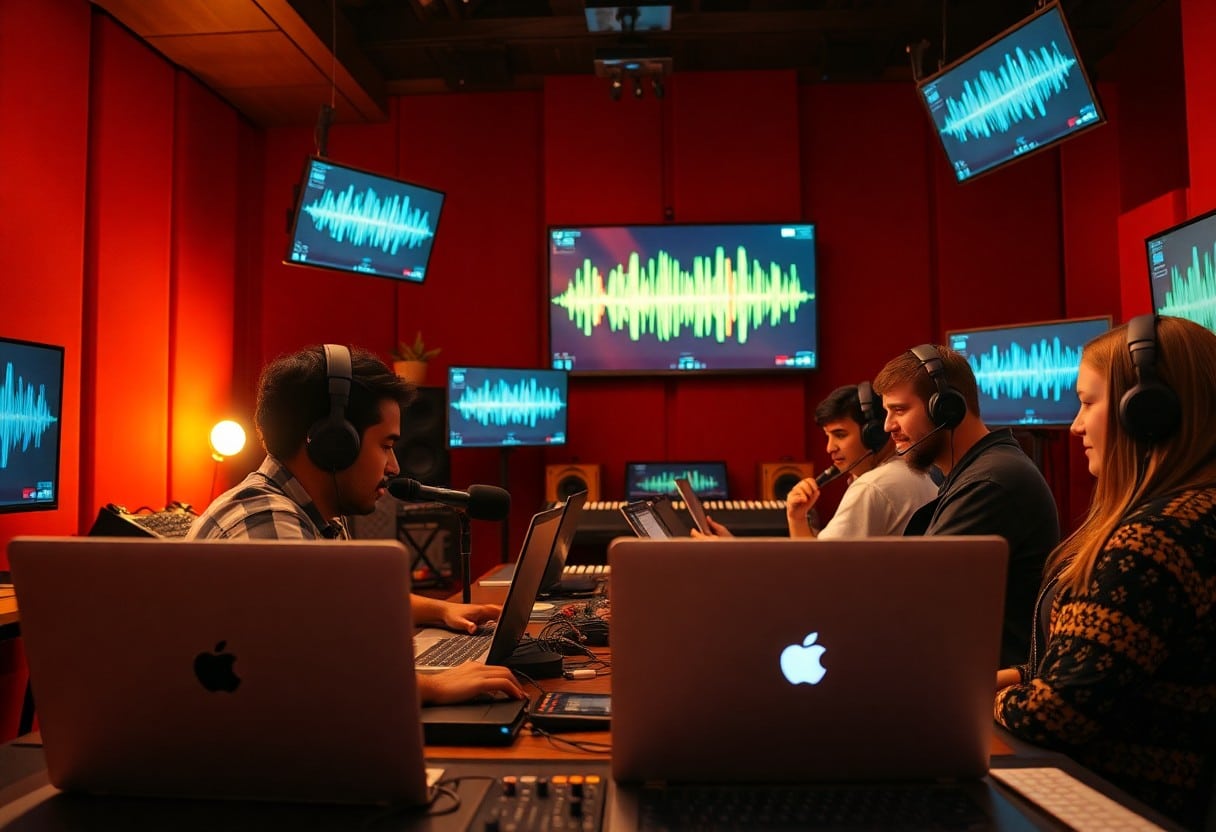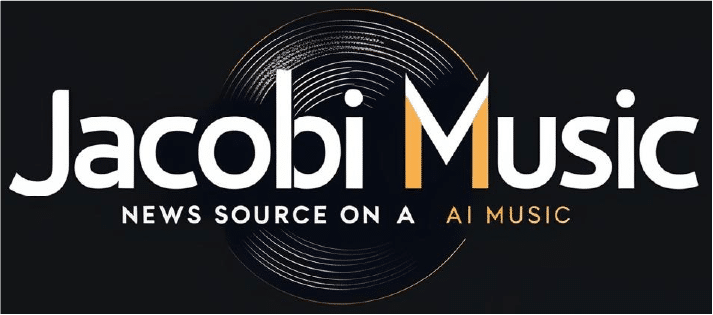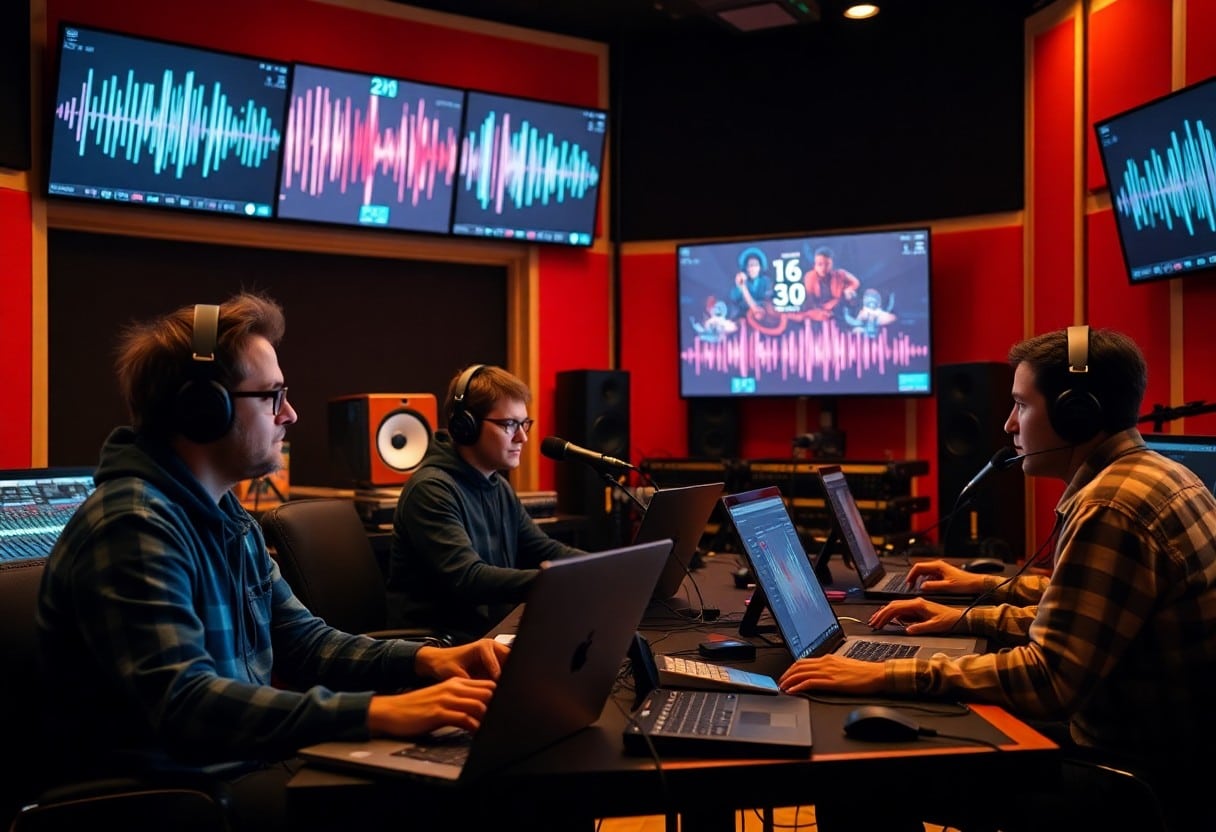Over the years, I have witnessed the evolution of music platforms, and SoundCloud stands out with its unique approach to artist discovery. You may wonder how this platform uses artificial intelligence to help you find emerging talents that align with your musical tastes. In this post, I will explore the innovative AI technologies SoundCloud employs to connect listeners like you with undiscovered artists, enhancing your listening experience and promoting diverse voices in the music industry.
The Role of AI in Music Discovery
Your experience as a music lover has transformed with AI at the forefront of artist discovery. Platforms like SoundCloud harness this technology to analyze your listening habits, making it easier to connect you with emerging artists and genres that resonate with your tastes. This synergy not only enriches your playlists but also elevates the way you engage with music, allowing for countless new musical journeys.
Enhancing Listener Experience
Across various platforms, AI algorithms continuously learn from user interactions, tailoring the listening experience to individual preferences. This means that the more you engage with music, the smarter the system becomes, pinpointing the exact type of sound you might enjoy. By leveraging advanced analytics, services can recommend tracks that align with your unique style, making your musical exploration more satisfying.
Personalized Recommendations
Against the backdrop of endless music options, AI technology excels in providing personalized recommendations that stand out. The algorithms analyze your previous listens, likes, and interactions to suggest songs that align closely with your tastes, creating a highly curated experience. This ensures that every time you log in, you’re presented with a selection of music that feels tailored just for you.
And as you discover new music through these personalized suggestions, the relationship between you and the platform deepens. The more you listen, the better the AI becomes at understanding your preferences. This cycle not only enhances your music discovery journey but also offers emerging artists a chance to connect with listeners who genuinely appreciate their work. The result is a dynamic, ever-evolving soundscape where both listeners and artists thrive together.

Machine Learning Algorithms in SoundCloud
Some of the driving forces behind SoundCloud’s success in artist discovery are its advanced machine learning algorithms. These algorithms help analyze vast amounts of user data, leading to tailored recommendations that enhance your listening experience. Recently, SOUNDCLOUD ACQUIRES CUTTING EDGE MUSIC AI technology, further emphasizing its commitment to leveraging AI for music discovery.
Data Collection and Analysis
Behind the scenes, SoundCloud gathers and processes user-generated data, including listening habits and interactions, to inform its recommendation systems. This rich dataset allows the platform to understand not only what you enjoy, but also what you might gravitate towards next.
Pattern Recognition and Trends
Along with data analysis, machine learning algorithms excel at identifying patterns and emerging trends within the music landscape. By recognizing these patterns, SoundCloud can provide you with personalized artist recommendations that align with your tastes and current musical trends.
Due to the dynamic nature of music consumption, SoundCloud’s algorithms continuously evolve. This means they’re adept at identifying shifts in listener preferences, allowing for real-time updates to your recommendations. By analyzing everything from genre popularity to emerging artists, SoundCloud ensures that you’re always in touch with the freshest sounds and trends that suit your unique listening style.

Impact on Emerging Artists
Not only does AI enhance the user experience on SoundCloud, but it also profoundly impacts emerging artists. The power of AI-driven algorithms provides tailored recommendations, allowing lesser-known talents to gain visibility and engage with audiences that they might not have reached otherwise. This transformative technology encourages diversity in music and democratizes the industry by giving fresh voices the opportunity to shine.
Discoverability and Exposure
Discoverability is at the heart of AI’s impact on emerging artists. With advanced analytics and personalized playlists, AI helps artists connect with listeners who are likely to appreciate their unique sound. This means that talented but lesser-known musicians are finally getting the exposure they deserve, which increases their chances for collaboration and growth in their careers.
Case Studies of Success
Along my journey exploring SoundCloud’s effect on new talent, I’ve come across several case studies that highlight the platform’s success in promoting emerging artists:
- Kali Uchis: Gained 6 million streams within the first month of her single release driven by AI-driven recommendations.
- Lil Nas X: Achieved a 1,200% increase in streams after AI algorithms highlighted his music, leading to his historic Billboard success.
- Juice WRLD: Saw a 700% rise in platform engagement after AI suggested his blend of hip-hop and rock, attracting a wider audience.
Due to these success stories, it’s clear that SoundCloud’s algorithms play a pivotal role in shaping the music landscape. The exposure provided by AI has given emerging artists crucial opportunities that might otherwise not have been available. These case studies underscore the potential and promise of AI in nurturing new talent, allowing artists to achieve remarkable feats that steer their careers in the right direction.
Challenges and Limitations of AI
Despite the promising advances in AI for artist discovery on platforms like SoundCloud, significant challenges lie ahead. These hurdles can range from algorithmic bias to genre limitations, which can impact the effectiveness of AI-driven recommendations. As I explore these issues, it becomes clear that while AI is a powerful tool, it is not without its flaws that need to be addressed for optimal performance.
Algorithmic Bias
Above all, algorithmic bias poses a significant challenge in AI systems. When data or training inputs reflect societal prejudices, the AI can inadvertently perpetuate these biases, affecting the diversity of artists recommended to users. This can limit exposure for lesser-known creators, and you might miss out on new music that resonates with your tastes.
Genre Limitations
With rich and diverse musical styles, the genre limitations of AI systems can restrict the discovery process. Many AI algorithms are trained predominantly on popular genres, which may lead to an underrepresentation of niche or experimental music. This can create a skewed listening experience, leaving you with fewer options that truly reflect your varied musical interests.
At the core of genre limitations is the challenge of adequately capturing the nuances of different musical styles through AI. AI tends to categorize music based on prevalent patterns, often sidelining unique or emerging genres. This means that if you’re someone who enjoys exploring eclectic sounds, you could find the AI recommendations lacking in variety. Addressing this issue will be vital to enhance your listening experience and ensure that all styles of music receive the visibility they deserve.
Future Trends in AI and Music
For artists and listeners alike, the evolution of AI in music is set to revolutionize the landscape of creativity and discovery. As algorithms become increasingly sophisticated, I foresee a future where personalized experiences in music streaming platforms will drive engagement and help emerging artists gain traction. In this dynamic environment, AI will play an integral role in bridging the gap between fans and fresh talent, creating a more inclusive and vibrant music ecosystem.
Evolving Technologies
Among the advancements in AI, machine learning and neural networks are transforming how music is produced, analyzed, and consumed. These evolving technologies are enabling smarter tools that can not only recommend music based on personal preferences but also assist artists in composing and producing innovative sounds. I believe this creates an unprecedented synergy between creativity and technology, enhancing the overall musical experience.
Predictions for the Music Industry
Trends indicate that AI will fundamentally reshape the music industry, impacting everything from talent scouting to audience engagement. I predict that as algorithms better understand listener preferences, platforms like SoundCloud will not only tailor recommendations but also foster collaborations between artists and their communities in unprecedented ways. This will lead to an enriched musical culture that promotes diversity and democratizes access to opportunities.
Future advancements in AI will likely streamline processes for both musicians and listeners. With more precise data analysis and predictive modeling, I expect platforms to refine their artist discovery algorithms continually. This will mean less time spent searching for new sounds and more successful connections between you and the artists you love. As AI becomes a more integrated part of music production, the industry will witness innovative genres and hybrid collaborations that bridge traditional boundaries, ultimately fostering greater creativity in music.
Community Engagement and Feedback
Once again, SoundCloud leverages AI to enhance community engagement and feedback among users. By connecting artists and listeners, the platform creates a dynamic environment where musical tastes can be explored and shared. This continual interaction not only promotes discovery but also fosters a sense of belonging within the SoundCloud community, making it easier for emerging artists to gain visibility and build a loyal fan base.
User Interaction with AI Tools
By utilizing AI-driven tools, you can actively interact with the platform to refine your listening experience. These tools analyze your preferences and suggest tracks or artists tailored to your unique tastes. Not only does this facilitate personalized music exploration, but it also encourages you to partake in the feedback loop that informs artists about audience reception. It’s a collaborative effort that benefits both listeners and creators.
Artist Feedback Mechanisms
On the other hand, SoundCloud has established effective mechanisms for artists to receive feedback from their audience. With the help of AI, artists can access valuable insights about their music’s performance, audience demographics, and personal engagement. This data-driven approach enables creators to understand what resonates with their listeners, ultimately inspiring them to develop art that reflects their community’s preferences.
Due to the automated nature of these feedback mechanisms, artists can receive real-time analytics about their tracks, including comments, likes, and plays. This information is invaluable as it guides artists in adjusting their style and marketing strategies to better engage their audience. Furthermore, by actively participating in discussions and responding to listener feedback, artists can foster deeper connections with their fan base, turning casual listeners into devoted supporters. This cycle of continuous feedback not only empowers creators but also enriches the listening experience for fans.
Conclusion
Hence, as I’ve explored the role of AI in SoundCloud’s artist discovery, it’s clear that this technology revolutionizes how you connect with emerging talent. By analyzing data trends and listener preferences, AI not only enhances your music experience but also empowers artists to reach their audience more effectively. As we move forward, I believe that embracing these advancements will allow you to discover and support a diverse range of creators, ultimately enriching your musical journey.

